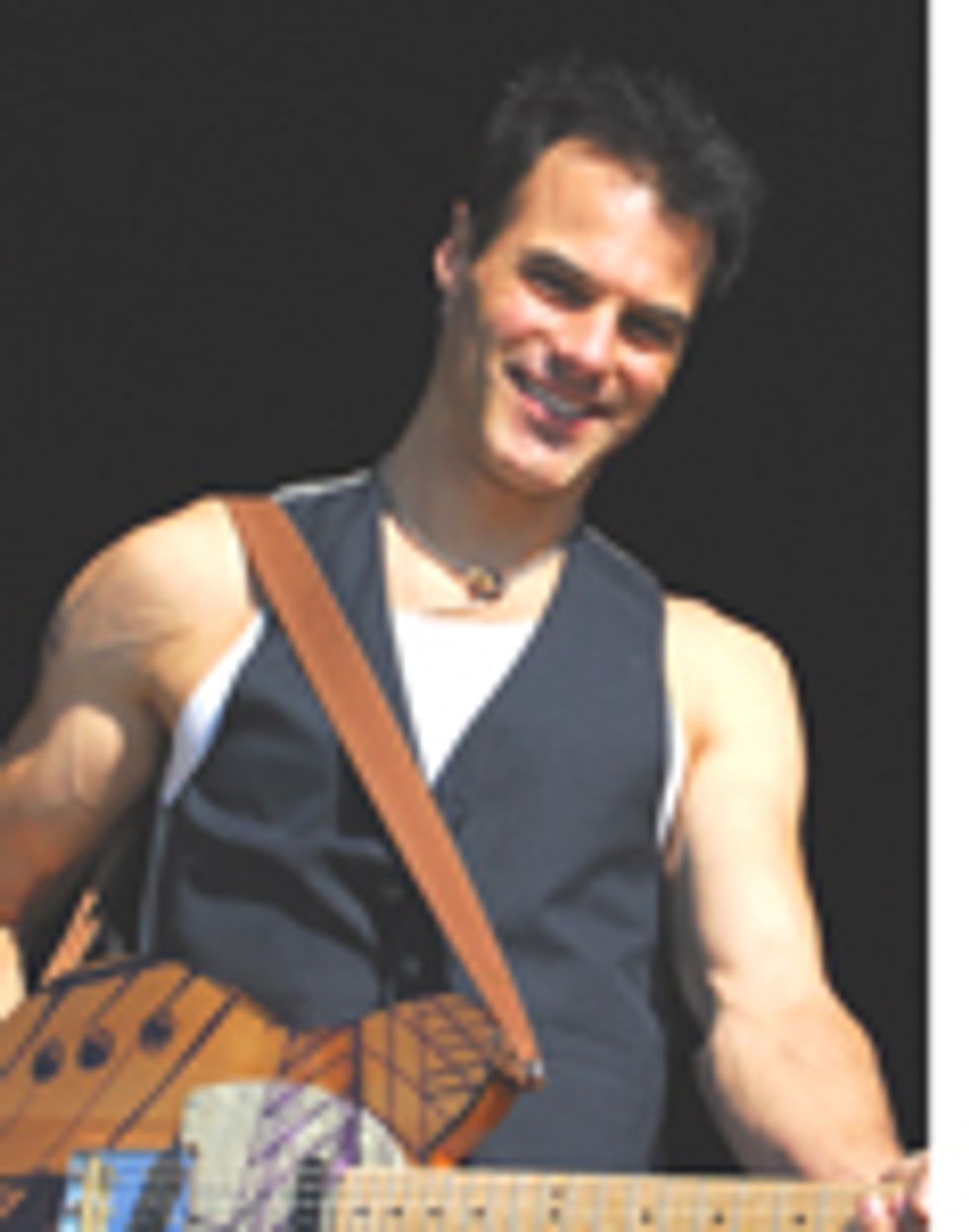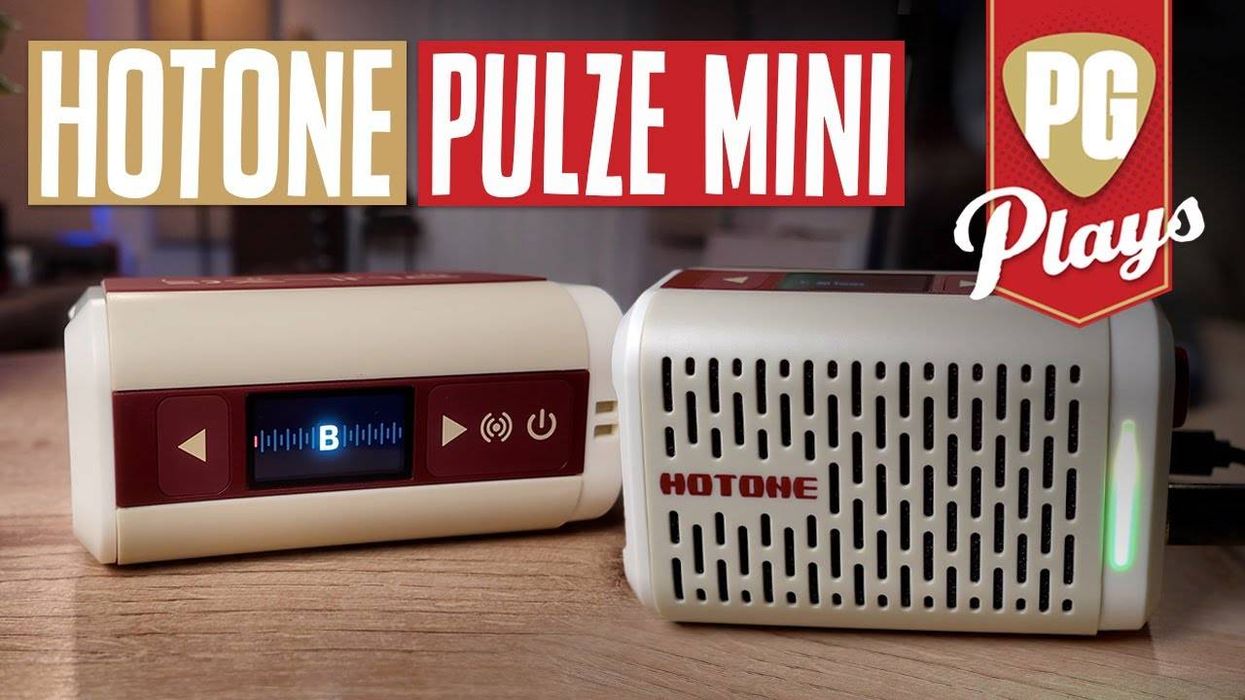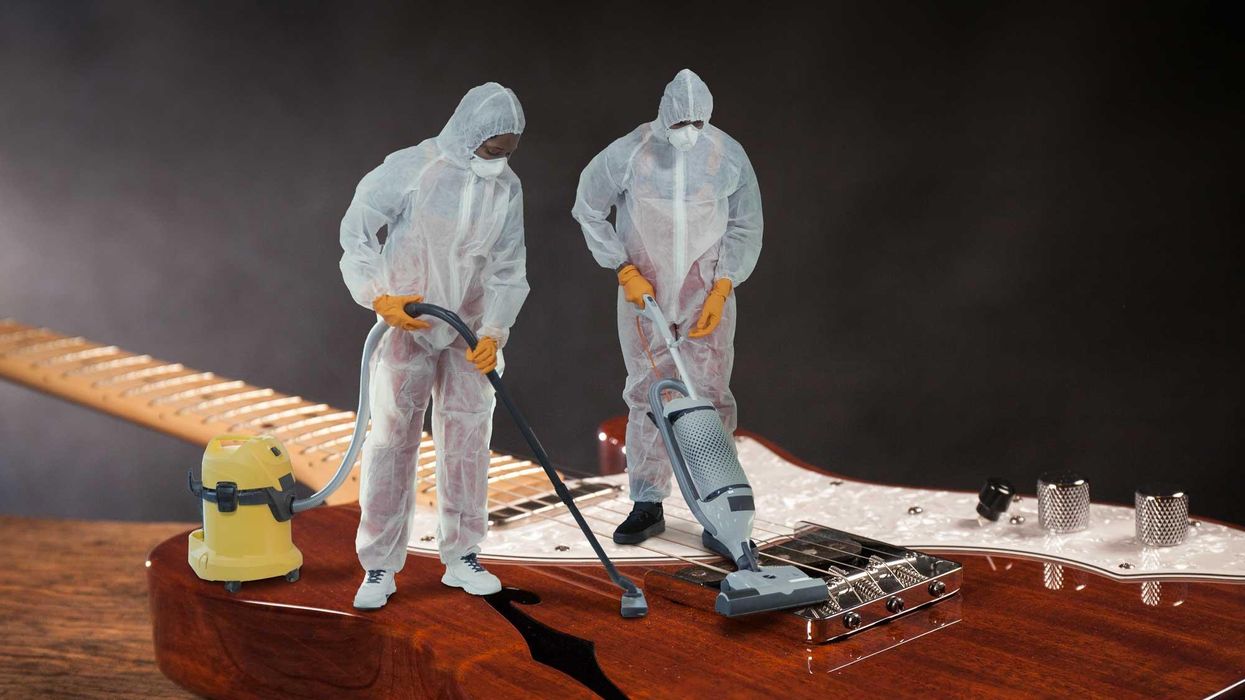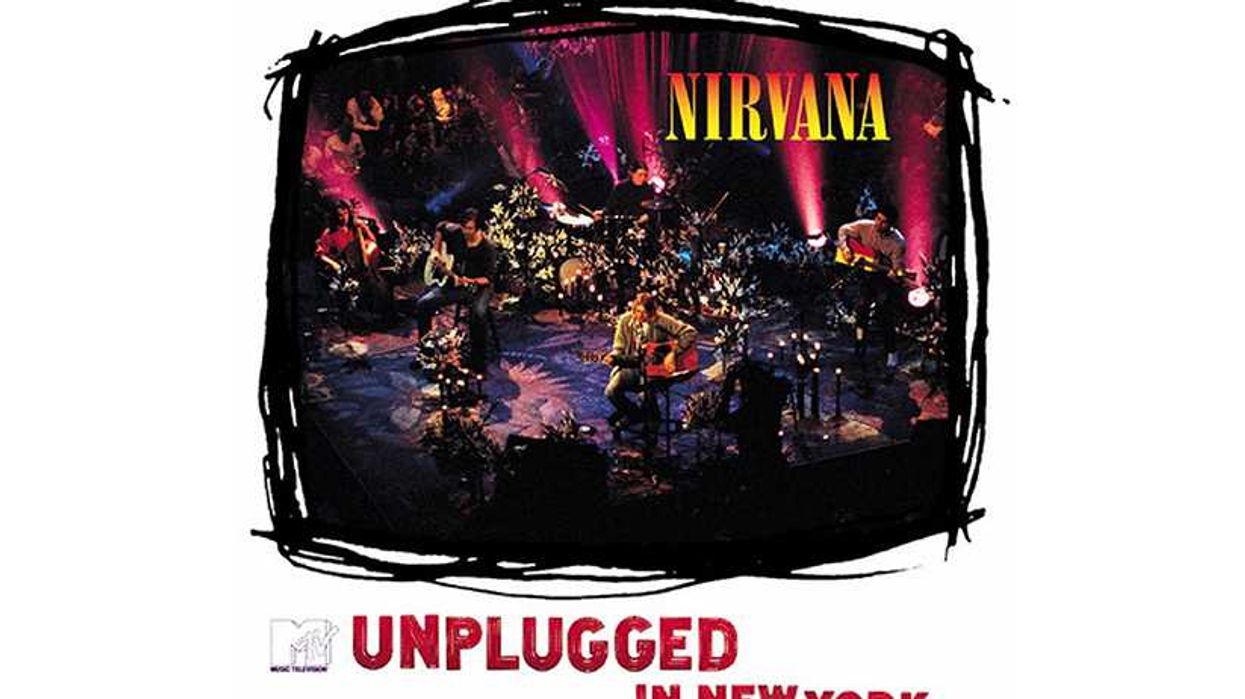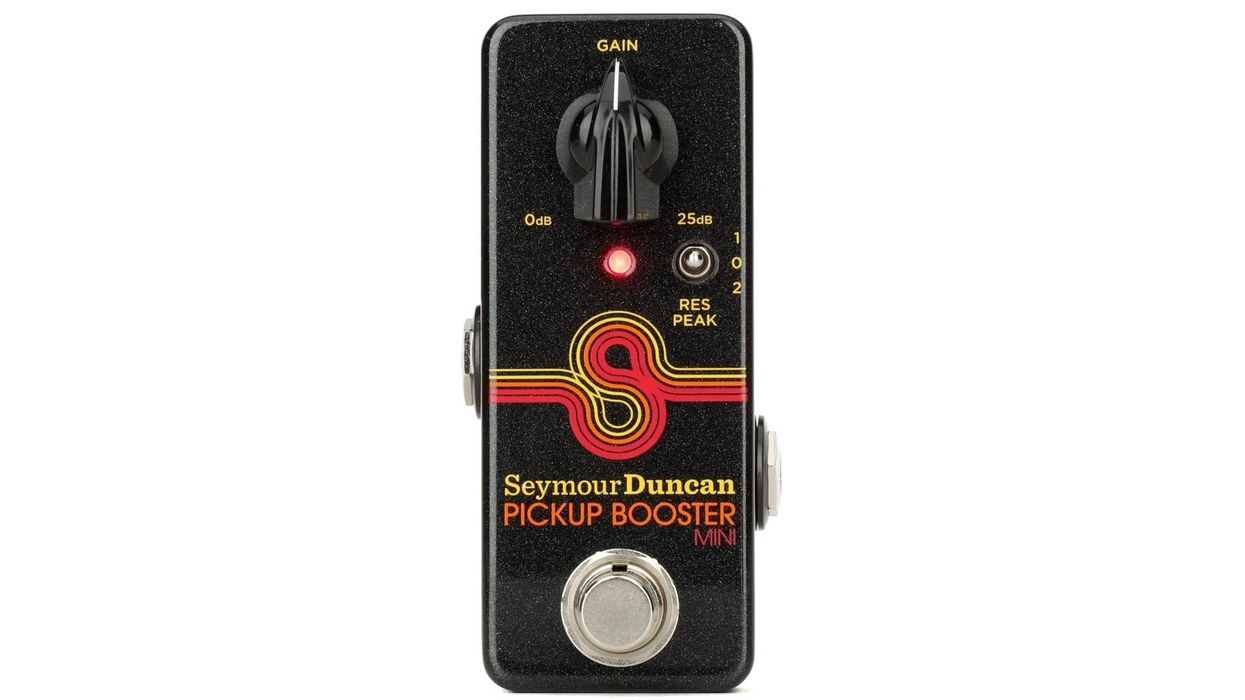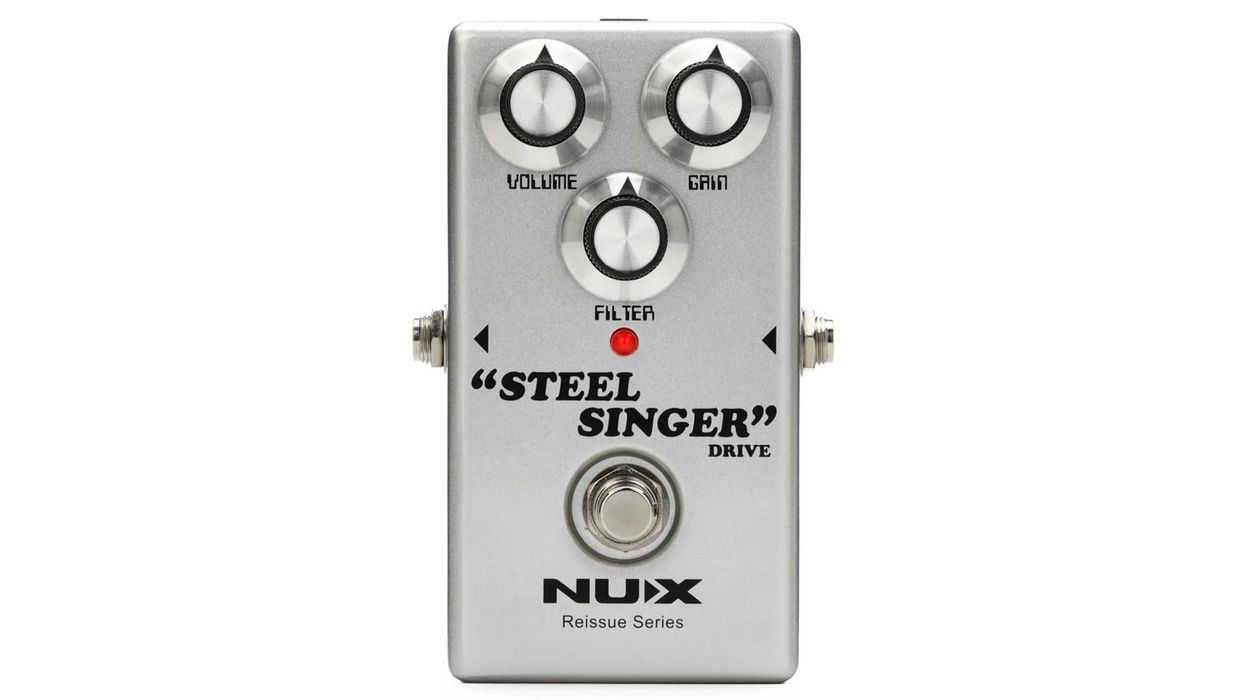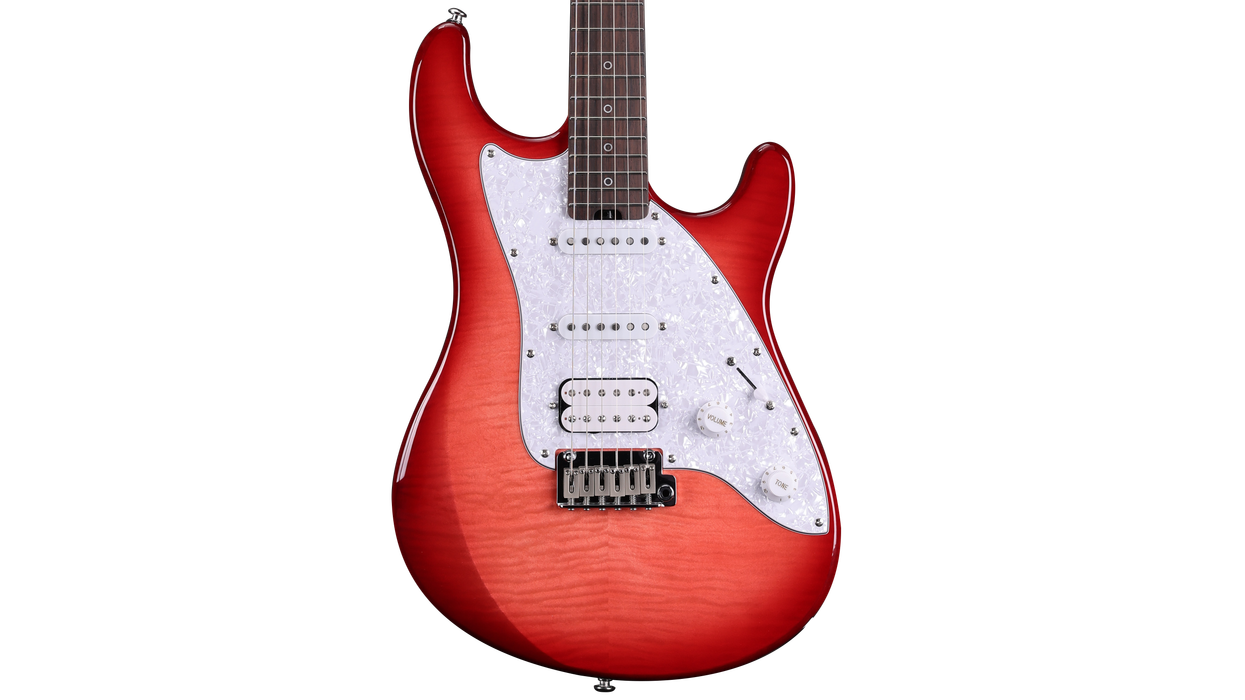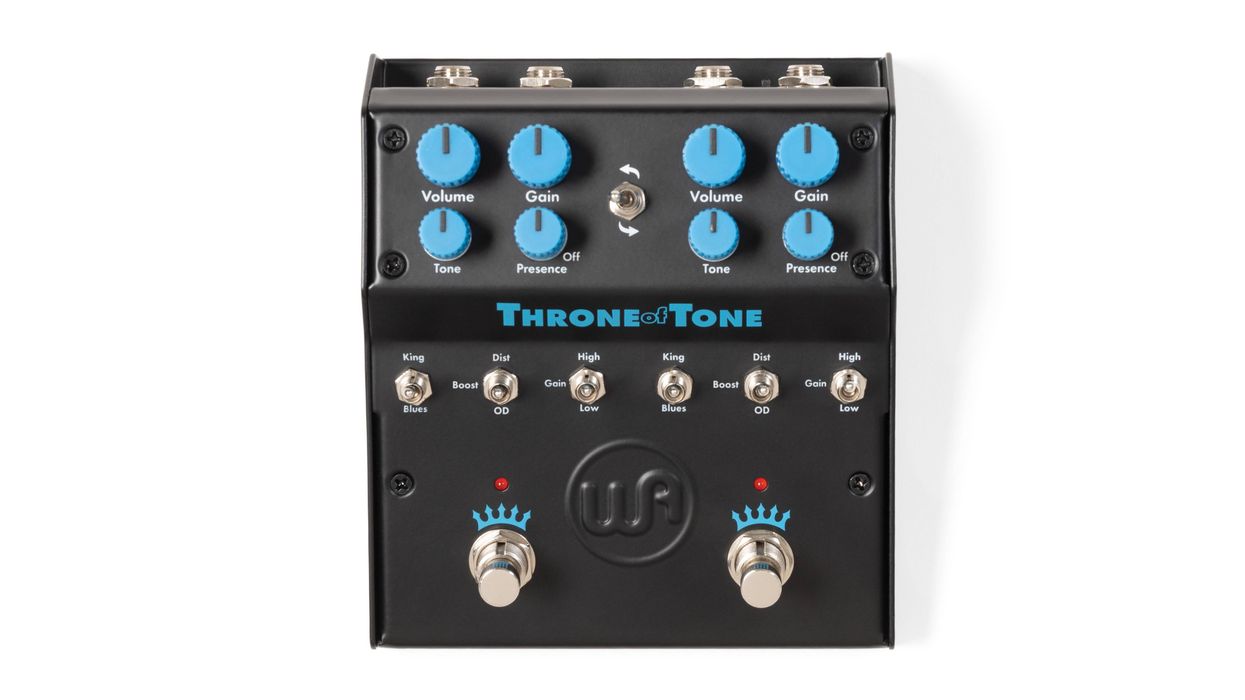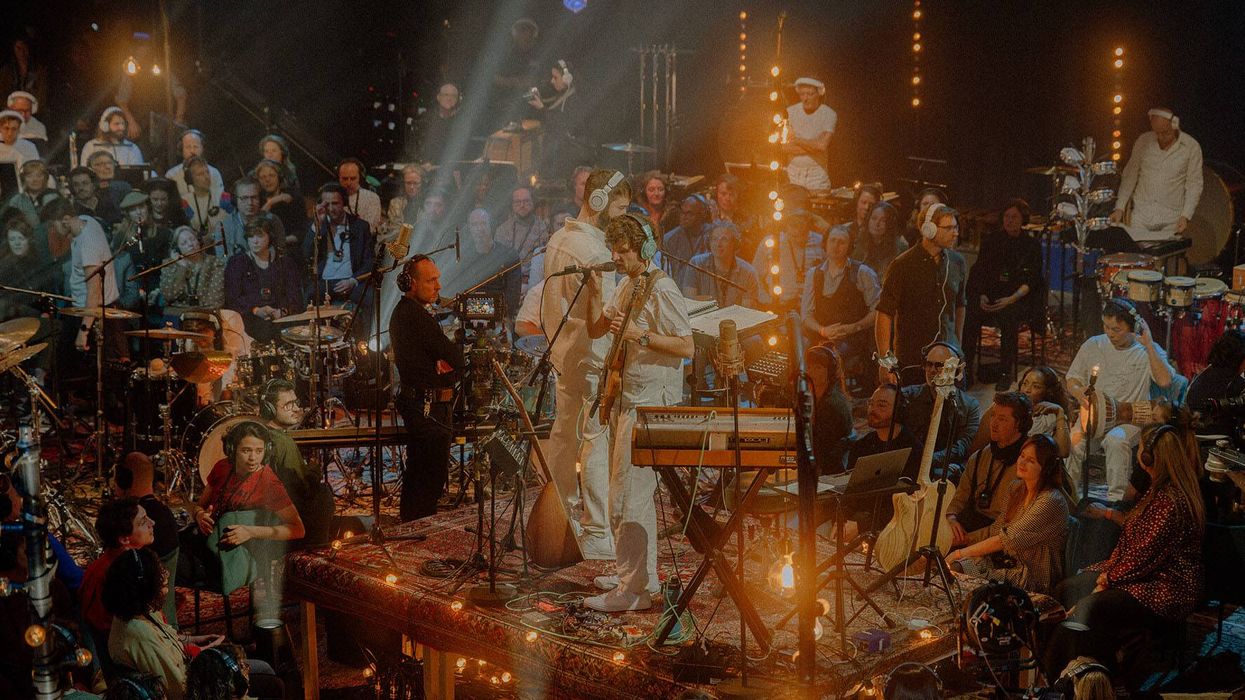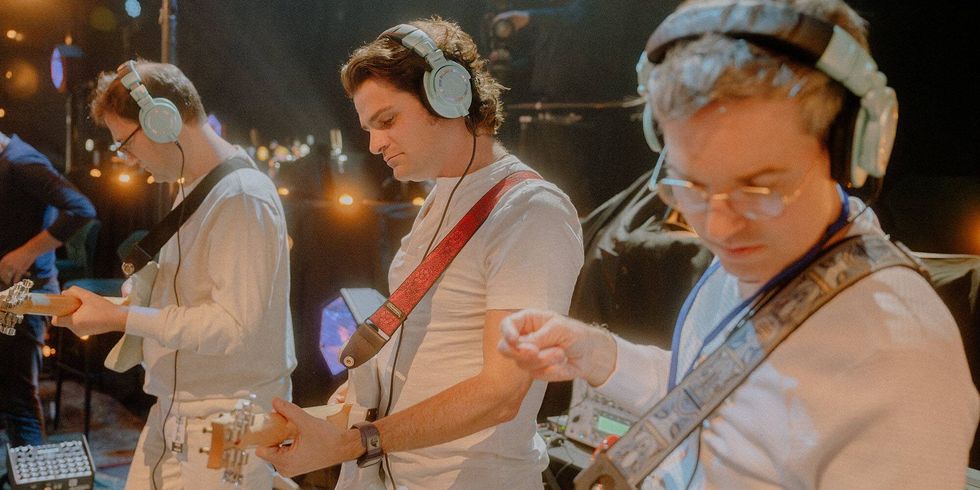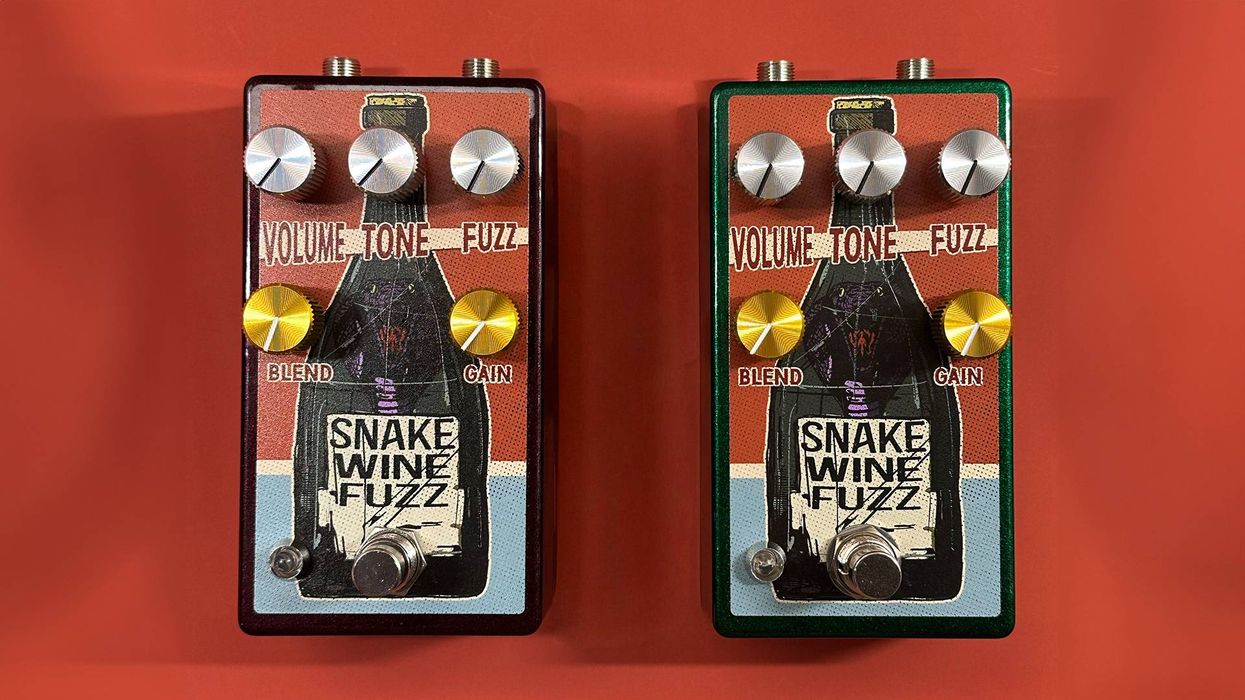Hey gang, time for a personal plug -- my new book, A Guitar and a Pen, has just been published by a division of Warner Books. Here''s an Amazon web link to make your book shopping that much easier.
Now on to this month''s column...
I got a call from the king of hick hop himself, Cowboy Troy, about an upcoming session he had booked in the Big Boy room at Soundkitchen. I met Cowboy Troy through his two years of co-hosting Nashville Star; he''s wildly talented, creative and fun. I was jazzed about recording with him.
The Schlep
I don''t hire cartage; it would be a wonderful luxury to arrive at a studio and have everything set up and good to go but that''s for the A team guys, not the likes of me. I always schlep my own gear. Normally, this isn''t a big deal but Troy has eclectic taste and loves to mix genres and tones that you''d think wouldn''t go together but end up making a thick, texture-ridden blend.
I loaded up everything I thought I might need: a Valley Arts Tele with a bender (my main stay), a PRS with a whammy bar, a Valley Arts Strat, an Epiphone baritone and a Weber Mandolin. I chose a Peavey 4/12 Penta cabinet, a Peavey XXX 40 watt combo, the ValveTrain 416 combo, some long DiMarzio super-thick guitar and speaker cables, and my studio pedal board replete with odd sounds you never use but need to have. (The only two pedals I use often are a compressor and an over drive made by Homebrew Electronics.) Ideally, I like the heads in with me so I can tweak as I go and leave a cabinet in an isolation booth. Although the XXX and the ValveTrain are combo amps, I only use their heads. It''s a bit of a pain to carry but it''s such a drag to be listening on headphones in the tracking room, not like your tone, go run back to the iso room, tweak one amp... run back to the tracking room, play your guitar, discover it''s still wrong... repeat. Worst of all, you might track the entire session with a series of tones you don''t really like. I carry way more stuff in hopes of avoiding that kind of session.
For a 10 am session, I arrive around nine to get sounds, tune up, let the guitars acclimate, go over charts and relax a bit, although I never really relax. I drink coffee, pace and jack with my gear.
What are we doing here?
Kentucky Fried Chicken contacted Cowboy Troy about producing background music for their ubiquitous television ads. They have been using a four bar loop of "Sweet Home Alabama" for years and needed something fresh. CBT had a killer single called "I Play Chicken with a Train" which he is converting to "I Got Chicken on my Brain". That''s the thing about big money ideas, they are rarely deep and esoteric, they''re obvious and leave you with a why-didn''t-I-think-of-that feeling. In addition to "Train", Troy composed a few raps and wanted to improvise tracks to fit them. Troy kills at freestyling as well, so he wanted to see where the jams went and adapt to them.
Besides Troy, I''d previously worked with two other guys on the session: drummer Jeff Marino and I had worked together with several different acts, keyboarder Steve Peffer and I did a Randy Owen gig together. They are both great players. I didn''t know the other guys but was familiar with their work, mainly with the Music Mafia.
Tracking and Hacking
First, we record "Chicken with a Train." This goes quickly. Troy knows exactly how he wants it, what riffs where, how we start, how we end. He has complete arrangements for several versions of the song. As it turns out, most of us in the room have played it live or in the studio with CBT before. The engineer pretty much pushes the red button and we blow it down live with Troy rapping. We are finished with that song in minutes. This is the confidence building part of the day.
Next is a jam idea CBT has. He has changes from a song on his first album but wants a different spin on it. (I think it was "Beast on the Mic" but my brain is so fried by the time I finish the session and we change it so much I could not have picked the song out of a line up if my freedom depended on it.) The drummer, Jeff, lays into a groove and I start messing with a funky Jerry Reid rip off. Troy says, "Yea, Amos Moses vibe, I dig it, let''s run with that."
We write a quick chart and start playing it in this swampy style while Troy freestyles. It feels great until the red button begins to shine. Immediately, I discover a major problem with our version of this song; the incredibly cool riff I''ve come up with is really, really, really hard to keep in the pocket. The guys all sound great but I wrestle with the timing. It has a backbeat on the high end while hitting a syncopated bottom, almost like a dar-a-did-dal. In short, I''ve come up with a riff that is better than me.
We get the basic track and I stay back to re-track my part. I feel like a bad student forced to stay after school for failing a test. Alone in this cavernous, now empty tracking room, I play through the song a few times. It''s unnerving to be in the tracking room alone while the artist, session leader, band members and engineers watch me play. I can see them talking heatedly. They may be discussing a bad call in a football game for all I know, but I always imagine they''re saying terrible things about my playing. My paranoia runs strong as I play my next pass.
"How was that?" I ask through the talkback.
Though I see them talking I hear nothing. I''m trying to read their lips to see if they are saying, "Why can''t he get it? He''s terrible, how can we get somebody else in here right away?"
"Should I hit it again?" I ask.
Finally I see somebody lean over the console, push the talkback and say, "Yeaaaaaaaa JB, take it one more time." He sounded like the coffee cup holding boss on "Office Space". He now knows that I''m a high-functioning retarded man who, bless my little pointy head, can''t read a chart or probably a comic book for that matter.
I play it again focusing on every bar, but there''s the rub -- I start to think maybe one note in bar two is out of pocket and as I''m thinking about that past bar, eight more bars pass. Then I wonder about measure twenty three and I try to make a mental note to check it in the play back but while I''m making this mental note I''m playing another ten bars and I begin to think maybe some of those bars are glitchy because I wasn''t paying attention and maybe I should just stop the take and start over and maybe they all hate me and will never hire me again and maybe I should stop this charade of being a musician and try grad school again or move to Montana and work at a ski lodge as a cook. Maybe I''ll get lucky and an airplane will crash into the studio right now and the evidence of my lack luster performance will be destroyed: hope, hope.
The track ends while my minds runs with this self-loathing rant.
"How was that?" I ask.
I see them talking, talking, talking. Their silence does nothing to placate my growing lack of confidence. Jeff raises his hand and points to his ear; studio mime for, "We are listening." He leans over the console, presses the talk back and says, "It''s great. Let''s move on." I am greatly relieved but secretly fear that they hate it and want to move on. I ask if I can hear it and they play it over the cans. It actually sounds good to me. So good that I suspect that the engineer, Bart, who is amazingly patient and talented, did a quick shift of track copy/paste that pulls it all together. Regardless of how it''s done, I am happy to move on to a easier groove.
Studio work focuses on the nuance of every bar and can be incredibly stressful if you get too picky. Some of my favorite records have grooves that move all over the place and thank God for it. They would not be as greasy and fun if somebody had Pro Tooled them into a stiff metronome groove. I often forget that when I am recording.
The moral to this story
Go Zen. Just do -- and don’t think. If you really focus on pocket you will be driven crazy. You''re wondering if you’re behind or in front and the bar is gone; it sounds great and then maybe it''s a little off, but is it off with the click or is it off with the band? Have they all moved or is it just you? That inner voice questioning everything is not your friend. When I listen to that guy I can''t play. Play should be fun; you can hear the fun in some tracks. If it''s not fun, take a couple of deep breaths, let out the tension and remember the fun of your first garage band jams.
